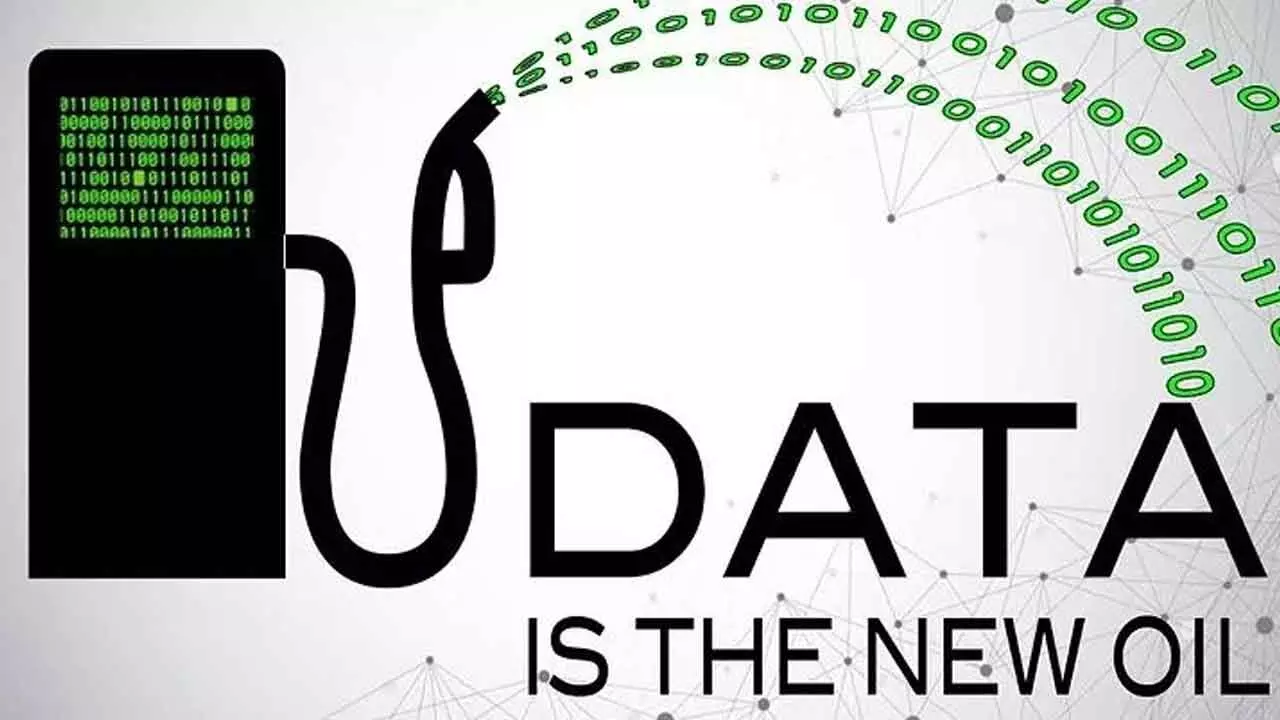Data As The New Oil: Maximizing Economic Value In Today’s Digital Era
Just as traditional commodities fluctuate in value, so does data, influenced by market dynamics
Data As The New Oil: Maximizing Economic Value In Today’s Digital Era

The Internet of Things (IoT) allows for seamless real-time data collection from interconnected devices. This wealth of data can be used for operational optimization, customer experience enhancement, and innovative product development
In the rapidly advancing technological landscape, data has emerged as a fundamental driver of economic value, and often compared to crude oil for its transformative potential.
We will explore the multifaceted nature of data monetization, examining the economic foundations and emerging trends that are reshaping how organizations leverage data.
Understanding the relationship between supply and demand in the data economy is essential. Just as traditional commodities fluctuate in value, so does data, influenced by market dynamics. This understanding is vital for businesses aiming to thrive in a data-driven environment, where effective monetization strategies can enhance competitive advantage.
The concept of data monetization is deeply rooted in the economic principles of supply and demand. The value of data is contingent upon the balance between its availability and the market’s need for insights. As firms learn to navigate these dynamics, they can identify the opportunities on hand for growth and efficiency.
The analogy of data as the new oil, popularized by Clive Humby, highlights its potential to transform industries. Data monetization strategies can be categorized into internal and external, each offering unique opportunities for organizations.
This approach focuses on using an organization’s data to enhance operations, improve decision-making, and elevate customer experiences.
Companies can analyze internal data to identify inefficiencies and streamline processes. For instance, manufacturers can monitor production lines in real time, while retailers can optimize inventory levels based on sales data.
Data insights allow businesses to tailor products and services to customer preferences. By analysing behaviour and feedback, companies can refine offerings and develop personalized marketing strategies, boosting customer satisfaction and loyalty.
Internal data monetization also empowers informed decision-making. By analyzing market trends and performance metrics, organizations can pinpoint growth opportunities and effectively allocate resources.
External monetization involves selling or sharing data with third parties, creating additional revenue streams.
Selling insights to third parties: Organisations can package and sell insights—such as industry reports or consumer trends—to other businesses or research institutions, generating significant revenue.
Companies can develop applications or platforms that offer valuable insights, like optimizing delivery routes or providing analytics services.
The rise of data marketplaces facilitates the buying and selling of data assets, allowing organizations to access diverse datasets while monetizing their own. These platforms enhance transparency and security in data transactions.
The Internet of Things (IoT) allows for seamless real-time data collection from interconnected devices. This wealth of data can be used for operational optimization, customer experience enhancement, and innovative product development.
AI and ML are revolutionizing data analysis, enabling organizations to uncover patterns and trends quickly. These technologies can enhance predictive analytics, allowing businesses to anticipate customer needs and optimize operations.
By processing data closer to its source, edge computing minimizes latency and enables real-time analysis. This is critical for applications in industries like autonomous vehicles and industrial automation.
Regulatory and ethical considerations:
While the potential for data monetization is vast, it is accompanied by ethical and regulatory challenges. Frameworks like GDPR and HIPAA provide guidelines to protect consumer privacy and ensure responsible data handling. Organizations must navigate these complexities to foster trust and transparency in their data practices.
The future of data monetization is promising, characterized by significant growth driven by advancements in analytics and AI.
The global data monetization market is projected to grow from approximately $1.4 billion in 2021 to $7.1 billion by 2028.
In summary, data, often referred to as the new oil, is pivotal in shaping today’s economy. By understanding the dynamics of supply and demand, companies can effectively monetize their data assets. The distinction between internal and external monetization presents various growth opportunities. However, this potential comes with the responsibility to approach data monetization ethically, ensuring regulatory compliance and consumer protection. By doing so, organizations can unlock significant value and promote a sustainable, equitable digital economy.
Embracing data's transformative potential will be crucial for innovation and long-term success.
(The author is a seasoned technologist and an alumnus of the IIMA. He currently drives data engineering practice in leading service sector industry)

